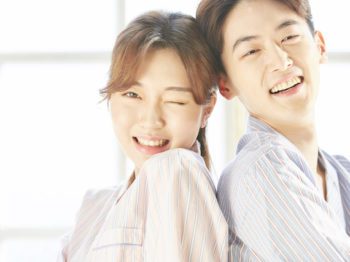This is the best age to have children in a successful relationship
Do you, like most people, believe that the secret formula to having a successful relationship boils down to nailing every important detail, including childbirth? Well, you are in luck. In this article, we dive right in and examine if there is indeed a best age to have children. And if so, what magical age is this?
A 2012 National Center for Health Statistics reported that a higher proportion of couples who have children before their first anniversaries continue to be in the same relationship after 15 years, more so than couples who take a longer time to start a family. While the results of this research are interesting, there are a host of other factors for a couple to consider when deciding the best age to have children together. Hold your horses right there, newlyweds.
BIOLOGICAL
The first thing that comes to mind is the health factor. Research has shown that there is an optimum range of ages for childbirth. According to John Mirowsky, a sociologist from the University of Texas, the best time for women to give birth is in their early 20s. In this age range, the likelihood of health complications affecting both mother and child is the lowest. Surely, the health of a mother and child is of paramount importance to the longevity of a relationship.
Therefore, a couple having children in their early 20s can to a large extent, take health considerations out of the equation. However, it can too be argued that a successful relationship hinges on the mother’s long-term health. Through conducting interviews with 1,890 mothers, and looking at factors like the presence of chronic health illnesses, Mirowsky gathered that the best age to have a first child is 34. Women who became mothers at the age of 34 were in fact significantly healthier than mothers who did so at a much younger age. So Sheryl Sandberg’s idea of leaning in does make you look beautiful and younger as well. What’s to worry then?
(Credits)
Here’s the big caveat: Another study conducted in 2002 by Angelo Alonzo, a sociologist at Ohio State, concluded that women who became mothers after the age of 35 had higher blood pressures and blood glucose levels, and poorer health and mobility, as compared to women who had their last babies by 35. Incidentally, the American Congress of Obstetricians and Gynecologists also state that the risk of stillbirth is greater in women older than 35 years old.
Both studies seem to point to a conclusion of having your first baby by 34 and your last baby by 35. This would of course require a certain measure of luck and would definitely enable the family to, from the outset, worry less about health complications arising from the pregnancy, contributing to the success of a relationship.
Nonetheless, a growing body of research suggests that older women (defined loosely here to be women older than the age of 35) are still more than capable of having healthy babies. This is contrary to the much popularised Mission Impossible for women past the age of 35. Women in this age group will still, however, bear more risk than their younger counterparts.
SOCIOLOGICAL
Besides considering biological factors, it is increasingly important today to consider childbirth in the context of a couple’s expectations and goals. In Ready: Why Women Are Embracing the New Later Motherhood, author Elizabeth Gregory shows that a large number of women are giving birth in their 30s and 40s. And they are actually glad they did so. This is because of a stronger family focus. After achieving their career goals, greater financial power, and greater self-confidence, they are now ready to take on the role and responsibility of being mothers. In stark contrast, teen mothers have a lower propensity to finish high school, and are more likely to rely on welfare. Hence, couples who do not rush into having a baby stand to reap dividends that also contribute to a successful relationship. Like the rabbit and the hare, fast and furious does not always win the race.
In the study, “Partner support for individual self-expansion opportunities”, published by Hayley C. Fivecoat, it was determined that people achieved higher satisfaction in their relationships when their partners actively support their efforts to expand their own horizons. Therefore, the rising aspirations and dreams of women should also be factored in when deciding the best age to have children in a successful relationship.
Unfortunately, there is simply no one best age that can be generalised across every individual. The best age to have children in a successful relationship is a function of a diversity of factors, based on the unique needs of each relationship, and we’ve only covered a few of them here. Ultimately, the magical age to have children isn’t a number to be whisked out of thin air. It should be based ondialogue and communication between both partners in a relationship – for these, after all, are the true ingredients of magic.
Recommended posts









